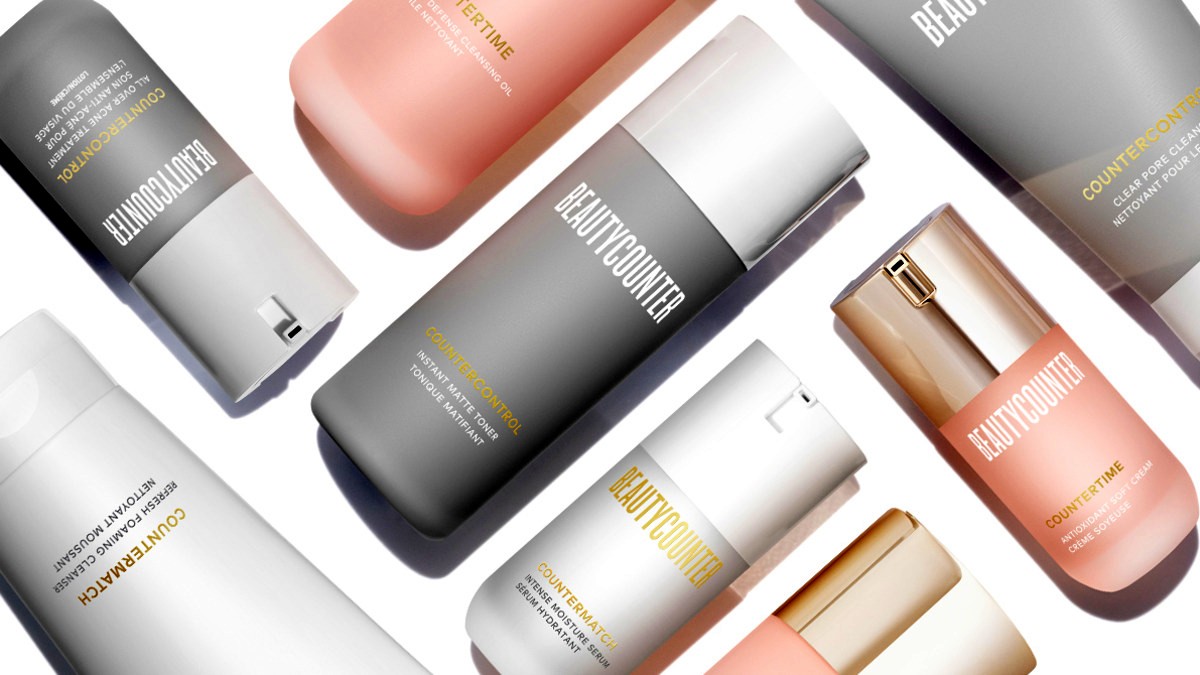The cosmetics and skincare company Beautycounter abruptly terminated all of its distributors this month. However, the company’s controversies go deeper than its sudden terminations.
Beautycounter was founded by Gregg Renfrew over a decade ago. The entrepreneur sought to create a company specializing in “clean” beauty products. The company’s products reportedly use far fewer chemicals than some other brands, with Renfrew forming a 1,800+ item list, known as the Never List, of ingredients that her products will never use. Beautycounter’s products quickly garnered interest as there is a growing demand for beauty products labeled “clean” and “natural.”
While the store opened its first brick-and-mortar store in 2018, it largely relies on a Multi-Level Marketing (MLM) business model. In an MLM, the company hires independent distributors or consultants who sell products for the company and try to recruit further distributors. Distributors take care of sales, marketing, and recruiting for the business and, in exchange, earn commissions on the products they sell as well as commissions generated from the team they’ve created through recruitment. In 2021, Beautycounter boasted almost 75,000 distributors. However, in April of 2024, every distributor was terminated from the company.
What’s going on with Beautycounter?
In April, Beautycounter’s entire distributor force received an email notifying them of their termination. The email notified them that their termination date was effective April 17, 2024. They would receive any final payments for unpaid commissions by April 26, 2024. However, they were to immediately cease sales and would have no further rights to any “bonuses, commissions, or other compensation following the Termination Date.” The reason given for the abrupt layoffs was that Beautycounter was “shutting down its operations.”
On April 18, The Carlyle Group, which had acquired a major stake in Beautycounter in 2021, confirmed it was selling the company back to Renfrew. After experiencing “significant market and channel headwinds,” the group determined its best option was to quickly exit the business after its sale. If one tries to visit the Beautycounter website, they will be met with the message that the business has “wound down,” although Renfrew claims she’s working on a new company. She calls the company a “new Beautycounter,” which will arrive in early May.
The situation is a bit difficult to understand, given that all distributors were terminated and the business claimed it was ceasing operations, yet also claims to be coming back in just a few weeks. On Reddit, users have claimed it wasn’t just distributors but also full-time employees who were terminated with no notice, severance, or health benefits. It is believed Renfrew is restarting her business and will be rehiring most of the employees and distributors whom she was forced to lay off due to the buyback. However, many are still criticizing her decision to give no notice to her employees and distributors despite clearly foreseeing the outcome and gathering investors to buy back the business. Sadly, the abrupt terminations are only part of Beautycounter’s controversies.
Why Beautycounter has long been controversial
Beautycounter’s shutdown renewed interest in the company’s controversial past. Even before the abrupt terminations, the company was accused of misleading and exploiting its distributors. It’s not surprising, as most MLMs are viewed with much skepticism. MLMs can morph into illegal pyramid schemes if the focus shifts more to recruiting than to selling actual products. Even if they’re not pyramid schemes, many MLMs are still viewed as predatory scams, luring vulnerable individuals in with promises of income. These “businesses” usually include some kind of entry fee in the form of a starter kit or class and require constant recruitment of friends and family to make any money at all. Most “distributors” spend money on the starter kit or to sample the products, then go on to never earn a dime from the business.
Criticism of Beautycounter arose when several bloggers and journalists decided to dig into the income of the company’s distributors. The website Travelling Jezebel looked into the company’s Income Disclosure Statement (IDS) and published the grim numbers. In 2021, the statement included earnings from 74,472 distributors. Of those 74,472 distributors, just 1% or 679 earned over $30,000 annually. The vast majority of consultants earned $0–$1,000 annually, while 22% made between $1,000 and $30,000 annually.
It goes without saying that these are pretty minimal amounts of money. Only 1% of people earn anything even remotely close to a livable wage. Most are earning nothing, not even an adequate amount of supplemental income. And considering distributors pay for starter kits to join Beautycounter, many were actually losing money from joining the business.
Some may insist it’s not really Beautycounter’s responsibility if its distributors fail to make sales or recruit people. The problem isn’t necessarily that people aren’t making money from being Beautycounter distributors; it’s that the company was misleading people into thinking they’d make money. The company was careful never to give exact figures about how much distributors would earn. Even the FAQ on its website danced around questions about income ranges, simply reiterating that distributors who perform well will get paid well.
However, media outlets like Truth in Advertising were able to pull numerous examples of misleading advertising from the company. For example, some advertisements claimed that distributors would be able to use their earnings to pay off debt, go on a family vacation, or pay for a summer camp for their kids. During the pandemic, when numerous individuals were laid off, the business claimed its earnings could replace the income loss from unemployment. Nowhere in its advertisements or on its website does it warn distributors that most of them will make no income at all.
MLMs like Beautycounter also often specifically target the most vulnerable. For example, the company has launched marketing campaigns targeted at those laid off during the pandemic and college students. They seek those most in need of stable income and then inundate them with glowing advertisements and false promises about being able to work from home at their own pace and with no limit to how much they can earn. The average person isn’t likely to think to search for an IDS—they’re going to go off the website and advertisements.
Beautycounter has been misleading distributors for years with its false promises and exploitative business structure. On top of scamming those who are most vulnerable, the business callously cut them all off without warning. With a new Beautycounter business allegedly on the way, hopefully knowledge of its terminations and scams will help one make an informed decision before joining as a distributor.
(featured image: Beautycounter)









Published: Apr 23, 2024 01:13 pm